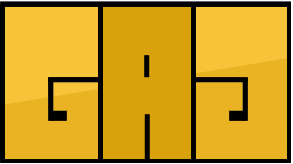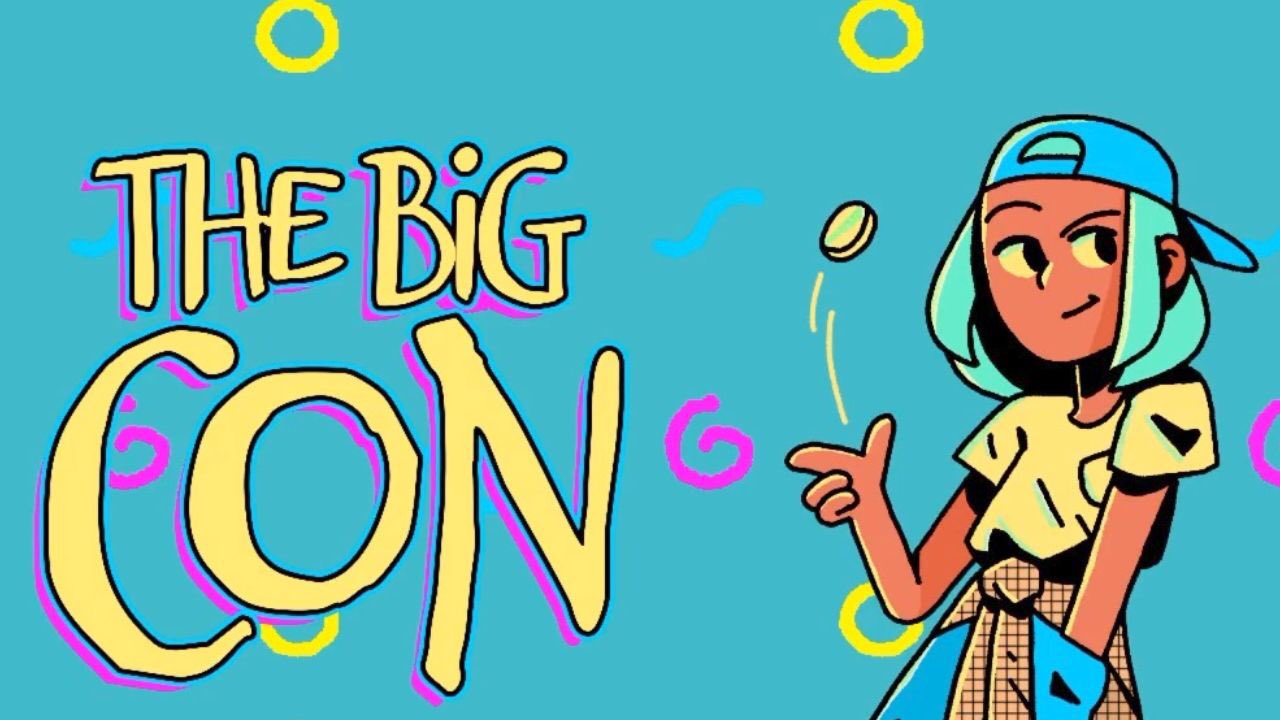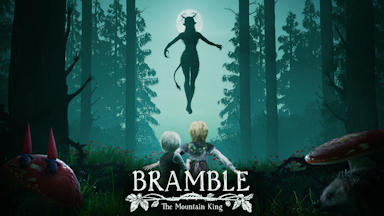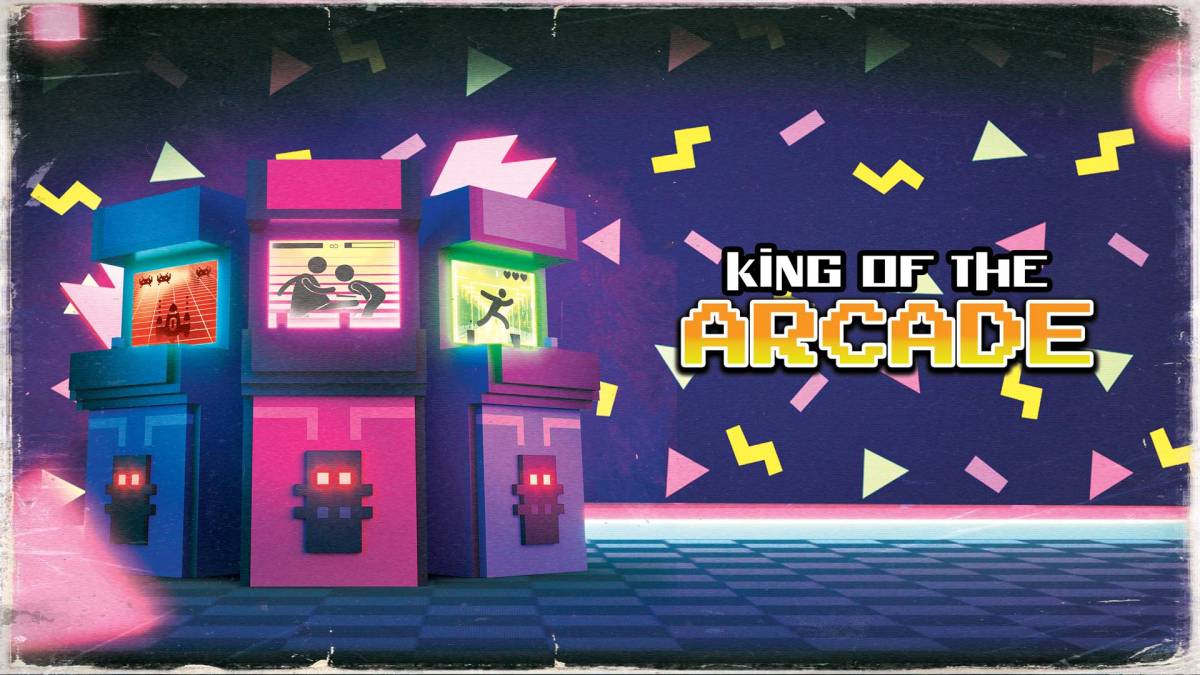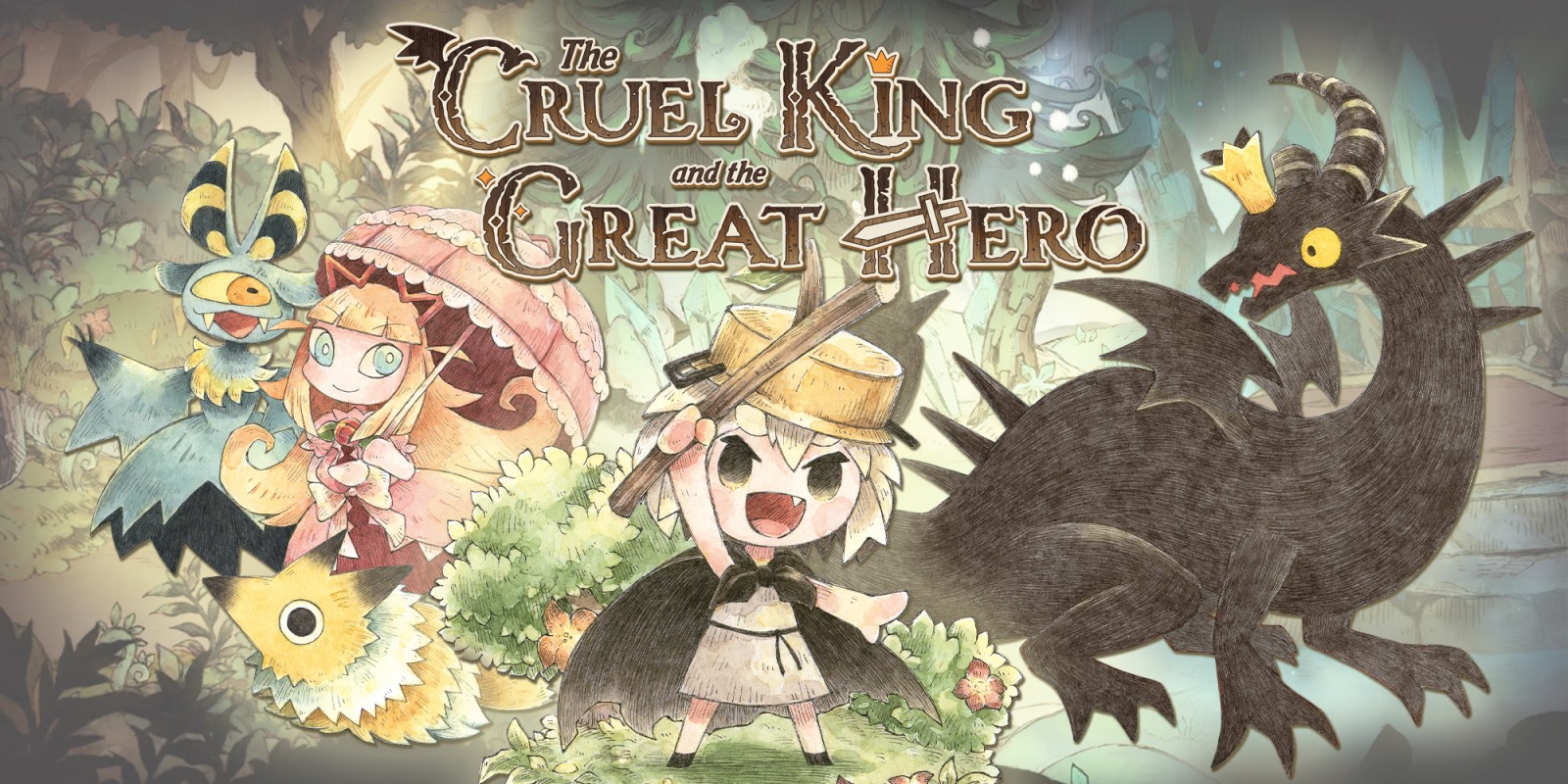
Platforms: Playstation 4 (reviewed), Playstation 5, and Switch
Have you ever met someone at a party or some event and were immediately charmed by them? You chat for a couple of hours, knowing you two will get along well. But then the night wears on, and you find this person starts to wear out their welcome. Things continue on, and that person just won’t quite take a hint that you’ve maybe had enough of them for the time being?
Well, I have. And unfortunately, The Cruel King and the Great Hero takes me back to those instances. It’s a charming little RPG with an adorable presentation, sweet story, and a delightful soundtrack. The problem is it sticks around longer than it needs to, and a lot of the stuff that happens in the middle goes between mundane and tedious.

You play as Yuu, a young girl the Dragon King raises in his kingdom of monsters. Yuu is the daughter of the titular great hero who passed away and entrusted his former foe, the Dragon King, to him. As the game progresses, Yuu will learn lessons about friendship, kindness, betrayal, redemption, and what following in her father’s footsteps and becoming a great hero actually means.
The story is presented in a child’s storybook fashion, with Yuu running through delightful and whimsical setpieces as she goes on her journey. Everything about the game’s visual presentation nails the storybook vibe the game is going for, from the character design to the cutscenes with a narrator that sounds like a parent reading their child a story. That extends to the sound design as a whole as well. The soundtrack really pins down the aesthetic, helping enhance the visual presentation with music that fits perfectly throughout the game.
The act of playing The Cruel King and the Great Hero is an entirely different experience.
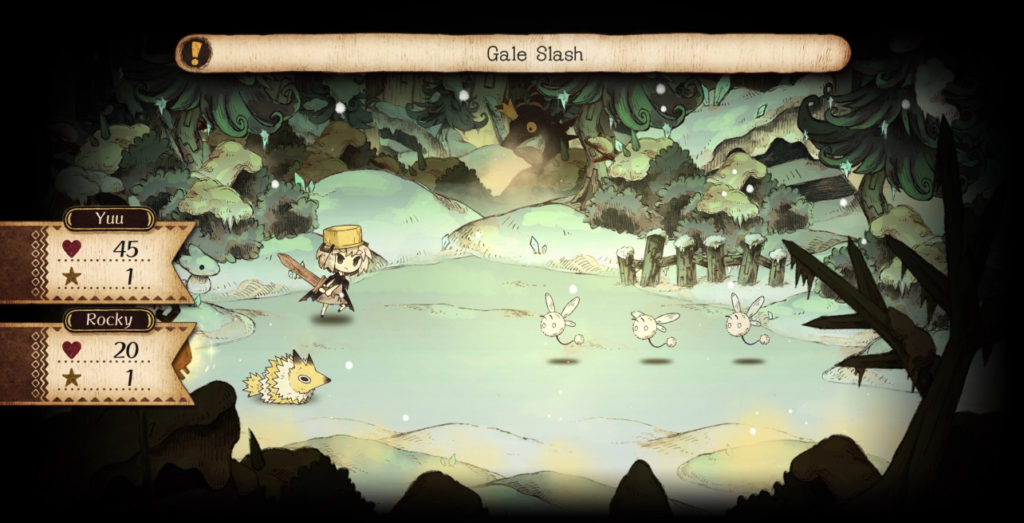
At the most base level, it’s a fairly standard turn-based combat JRPG. You get a fairly basic set of combat selections, with the skills and defense options being the most involved. Using a skill uses energy points, and you recover one at the end of each round, including, blessedly, when you win a fight. Choosing to defend will net you an extra energy point for that turn and you can also use an item to recover energy points. You only get a small amount of them, even at higher levels, so their use takes a bit of consideration.
While I didn’t initially mind the combat system, it started to wear on me as the game went on. The encounter rate seemed to steadily increase as the game progressed, with difficulty seeming to ramp up all at once. The encounters went from completely doable with only occasional use of skills through most of the game, to bringing my party to the brink of death after nearly every fight unless I utilized the skills in the last third or so of the game. While I’m certainly more than okay with more strategic battles, the, at times, nearly overwhelming amount of foes Yuu and a companion had to face made every fight feel like I was severely under-leveled.
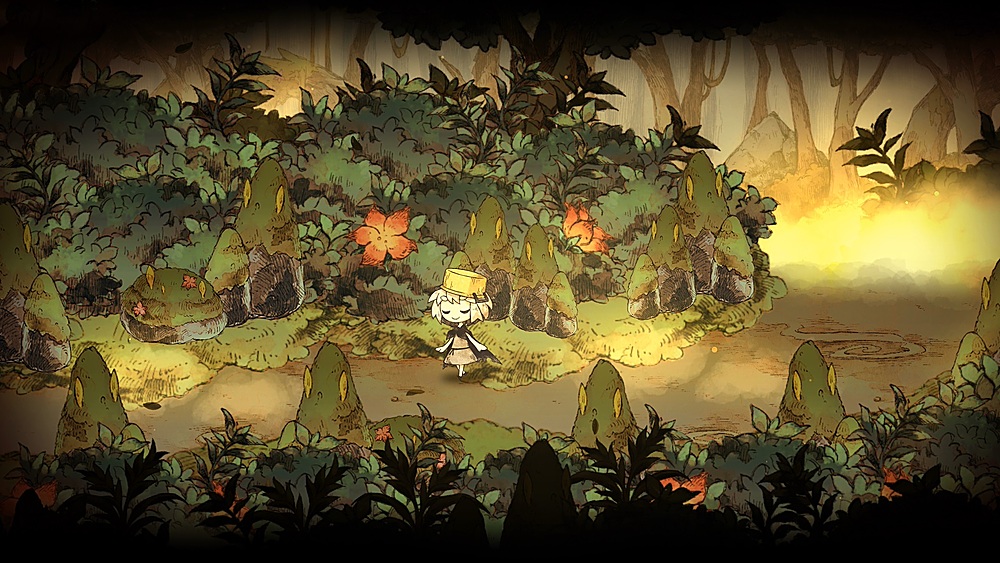
Again, this plays like a fairly basic JRPG, so some grinding is to be expected. The issue is I could never find anything indicating how close Yuu or her companion were to leveling up. This was particularly frustrating in the last third of the game. I’d be chewing through my inventory to keep myself alive, use a few healing items, only to have Yuu or her companion level up, healing them completely. It’s always a great feeling when you use a healing item for no particular reason.
With Yuu’s slow movement speed through areas where the enemies are stronger than her (she’ll be able to move more quickly through an area once she’s stronger than the enemies there) and the high encounter rate, it made the last third of the game feel like an absolute slog. I definitely needed to level up more, but with the rather simple battle system, the idea of running around and fighting more never really appealed to me. In those latter areas, it became necessary to grind quite a bit even to be able to make progress. And with Yuu’s slower movement speed, I had to really stockpile on the healing items just to keep myself alive long enough to both poke through areas to find equipment that might help my chances in battle a bit more and to get to the fairy springs that act as both fast travel and healing points. Really, the only saving grace is that there’s no penalty for attempting to run away. But then you run into the problem of being under-leveled. It’s a vicious cycle.
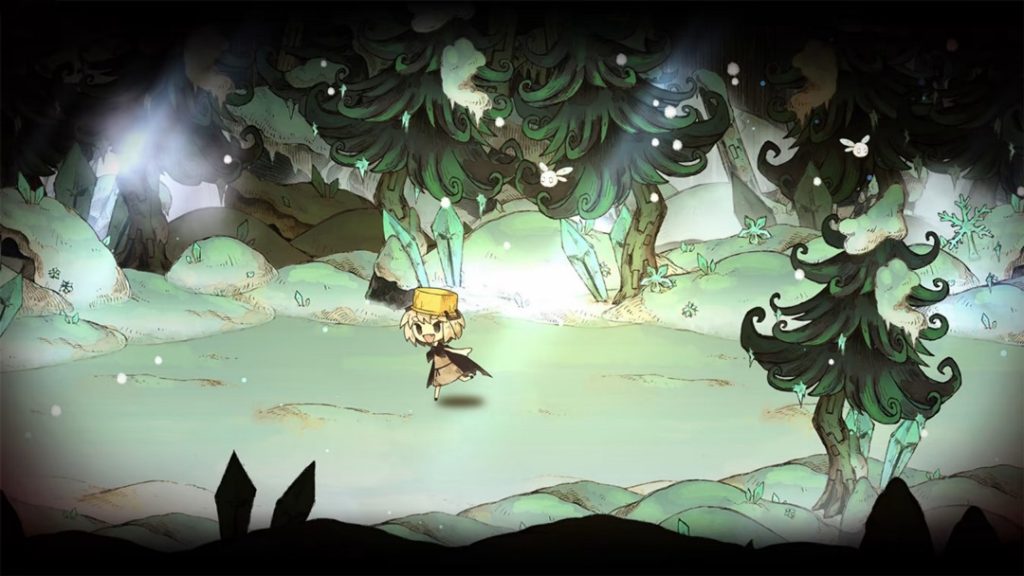
Side quests are available to pursue, which really just boil down to fetch quests. Again, I’ve got nothing against those as even most of my favorite RPGs have side quests that are just fetch quests. They’ll net you some extra cash, items, and a deeper perspective of the other inhabitants of the world. One of the problems with this structure, again, boils down to needing to traverse the areas where battles occur and having to deal with those. If you barely skated by the boss of an area, going back and having to either fight more enemies or just constantly run away from them isn’t an appealing one.
The other problem with these quests is the inhabitants tend to get a little too chatty. Initially, I found Yuu’s unflappable positivity and desire to help others quite charming. The fact that the side quests are named Acts of Kindness is definitely fitting. As more of them are presented, even these can start to wear on you. Even the most charming characters can overstay their welcome, talking Yuu’s ear off for a simple, multi-part fetch quest. As the game went on, I eventually stopped doing them altogether until the last chapter. I was fairly under-leveled for the final task, so I thought doing some Acts of Kindness would be a good way to break up the monotony. Instead, I was “treated” to characters that just kept yapping. After a few of these, I found myself mashing the button to make the conversation go faster.
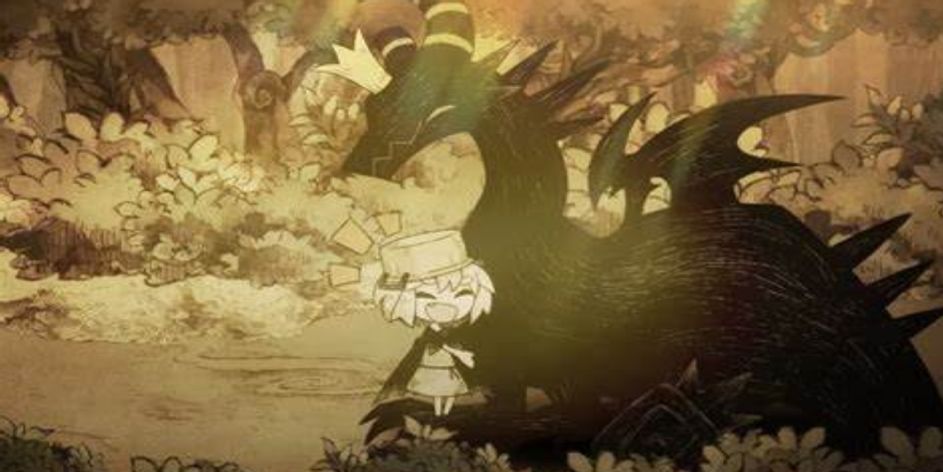
But it’s not all bad. No, the story itself is really a sweet and endearing coming-of-age story that also doubles in a lesson of what being a great hero actually means. Yuu, through helping her companions in various chapters, realizes more and more that just defeating enemies isn’t what makes a hero great. By the end, Yuu has gone through a journey that, while maybe a little simple and obvious, has a few steps along the way that do something interesting. In the last third, she has to face her own inner demons and come to terms with her actions and her desire to follow in her father’s footsteps and how that goal affects not only her but everyone around her, including her adoptive father, the Dragon King. I won’t spoil it, but the penultimate chapter takes quite the turn, and some of the things that happen almost fly in the face of the rest of the presentation.
Really, it comes down to it being bogged down with too much combat and areas that are far too expansive. Allowing myself to play armchair developer here for a paragraph, if the encounter rate had been lower and the latter part of the game’s difficulty toned down, The Cruel King and the Great Hero probably wouldn’t have felt like quite the slog to get through. Making areas smaller would have also helped, as slowly plodding your way through a screen to get to an area, only to find that area was a deadend, can be more than a bit frustrating.
During my 21 hours with the game, I spent a few of them doing the Acts of Kindness, thinking this would be a much shorter experience. You can probably get through this game in about 15 hours if you skip through the Acts of Kindness, but even that feels like five hours too many. As the game just kept going despite seeming to be near at an end, it started to wear out its welcome. I can’t imagine if I had done all of the Acts of Kindness, I’d feel any better about my time spent. There’s a good 10-15 hour game here that gets lost in too much padding.
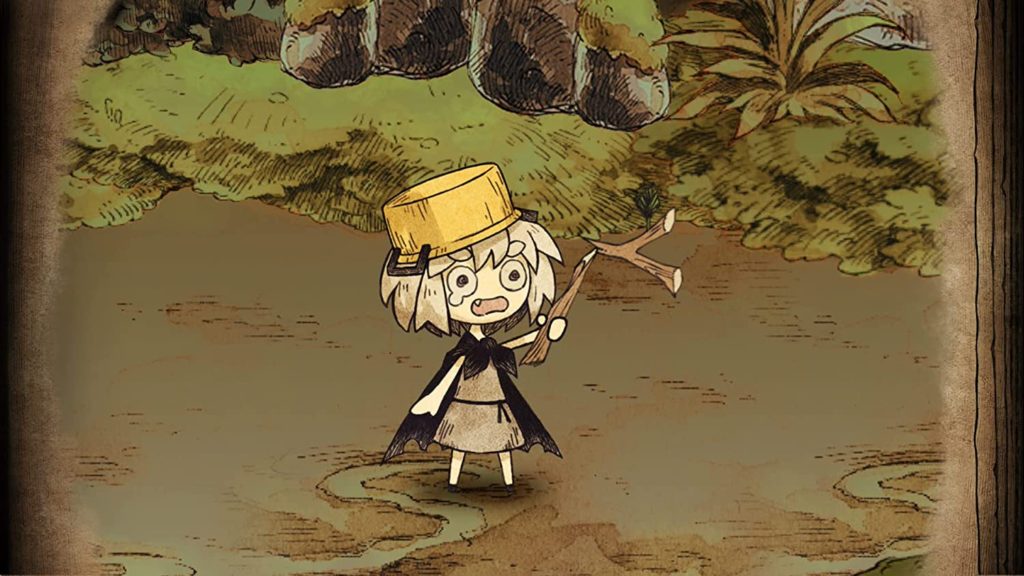
As charming as The Cruel King and the Great Hero can be, I have difficulty recommending it. Again, the story’s main narrative is really solid, and the presentation adds so much to selling what’s here that I feel like there are two different games here. The narrative-driven sections are delightful, even doing something interesting and slightly unexpected two-thirds of the way through. The actual act of playing it though is tedious and gets frustrating as it goes on. There’s something really good here, but it’s held back by a battle system that’s far too simple, rears its head far too frequently, and borders on wildly imbalanced in the latter part of the game. If that’s something you feel you can overlook, I think what The Cruel King and the Great Hero brings is worth a go. If after reading through the criticisms I had with it, you don’t feel you could get past them either, then it’s probably best if you spent your time elsewhere. There’s a really good story here that almost gets entirely overwhelmed by the actual game itself.

